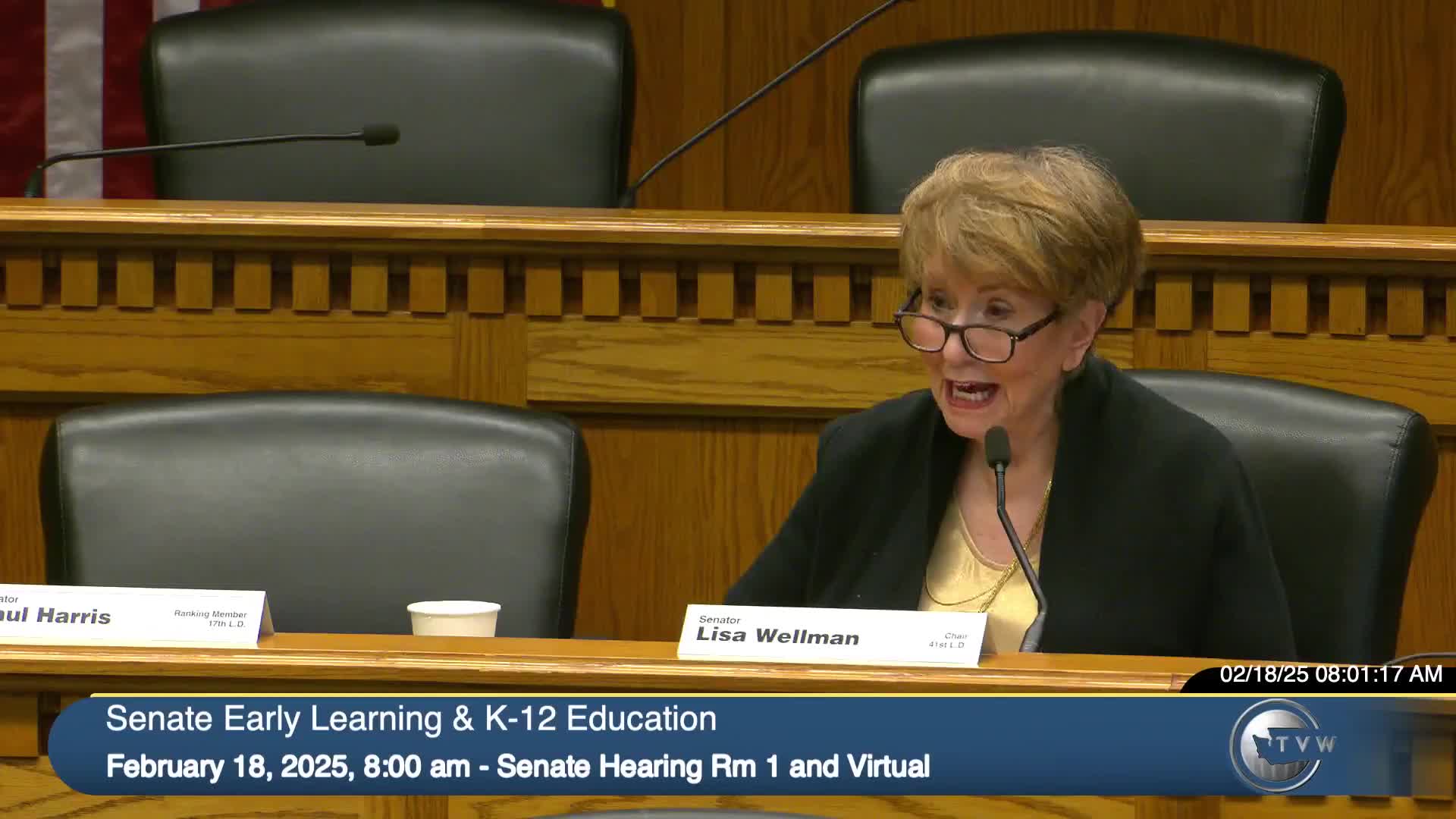Senate committee hears broad support for bill to add AANHPI history to K-12 standards
Get AI-powered insights, summaries, and transcripts
Subscribe
Summary
During a public hearing on Senate Bill 5,574, educators, students, advocacy groups and the bill sponsor urged the Senate Early Learning & K-12 Education Committee to direct OSPI to adopt learning standards and support materials for Asian American, Native Hawaiian and Pacific Islander history; no committee vote occurred during the hearing.
Senate Bill 5,574, which would direct the Office of Superintendent of Public Instruction (OSPI) to adopt Asian American and Native Hawaiian Pacific Islander (AANHPI) history learning standards and require school instruction aligned to those standards beginning in the 2029–30 school year, drew extensive public testimony and sponsor remarks at a committee hearing.
Supporters told the Senate Early Learning & K-12 Education Committee the change is aimed at reducing historical erasure and addressing rising anti‑Asian hate. “SB 5,574 gives the residents of Washington hope,” said Angelique Chong, director of Make Us Visible Washington, adding the bill “does not create any new graduation requirement” and would integrate AANHPI stories into existing U.S. and Washington history frameworks.
The bill has three main components: directing OSPI to adopt AANHPI history learning standards by Sept. 1, 2028; requiring districts to provide instruction in grades K–12 when the topic aligns with state social studies standards and state history frameworks beginning in 2029–30; and establishing a temporary advisory committee to assist OSPI with implementation and a framework for teaching the material. OSPI must also identify curricula and instructional materials in collaboration with community-based organizations and Educational Service Districts, and the bill says it "does not supersede" the since‑time‑immemorial curriculum or ethnic studies materials, according to committee staff presentation.
Students and community advocates described personal and local histories they said are missing from classrooms. “When I think of our country, I think of home,” said Scarlett Lau, a high school student from Edmonds, who testified in strong support and urged the committee to move the bill before the policy cutoff. Testimony included accounts of bullying, historical court cases such as Wong Kim Ark and local figures like Pio DeCano, and references to research linking inclusive curricula with improved student engagement and well‑being.
Representatives of education organizations offered qualified support and implementation concerns. Nasue Nishida of the Washington Education Association said the union appreciates the bill’s intent but noted that last session’s Senate Bill 5462 already required OSPI to screen learning standards for bias and to post revision timelines, and asked that OSPI be allowed to follow its established public revision process. Casey Brown, speaking for the Association of Washington Principals, said the association was a “reluctant other” in support: it endorsed the intent but warned the committee about teacher workload, and recommended strong encouragement plus professional development and materials rather than an unfunded mandate.
Senator Tawanna Nobles, the bill sponsor, told the committee that AANHPI communities have helped build Washington and that education is a key tool to counter ignorance and prejudice. Committee staff said a preliminary fiscal note estimates OSPI implementation costs of $510,000 for the 2025–27 biennium and $249,000 for the 2027–29 biennium.
The hearing included a range of community voices and personal histories: Vivian Song, a former school board director; representatives from the Filipino American National Historical Society; members of community organizations; youth speakers; and survivors of World War II incarceration. Several speakers urged the committee to adopt statutory standards rather than rely solely on periodic standards updates, citing an example in Colorado where AANHPI references were removed from draft standards during a revision cycle.
No formal committee vote on SB 5,574 was recorded during the hearing. Committee staff invited written testimony for filing with the committee record.
Supporters said passage would make AANHPI histories part of the state’s social studies standards and require annual reporting by districts that offer the instruction; opponents or skeptics largely flagged implementation capacity, professional development needs and the desire to use OSPI’s existing standards‑revision process.
The committee moved on to other agenda items after the public testimony and sponsor remarks. The bill’s next procedural steps were not recorded in this hearing transcript.
